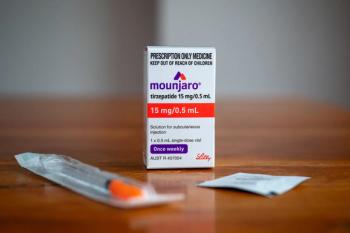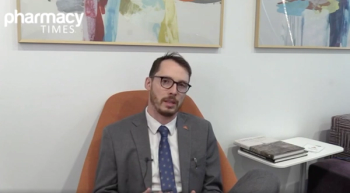
Within the Veterans Health Administration System, primary care pharmacists are embedded in primary care panels and work alongside primary care physicians and nurses to optimize medication management for patients.

Within the Veterans Health Administration System, primary care pharmacists are embedded in primary care panels and work alongside primary care physicians and nurses to optimize medication management for patients.

Improving collaboration and communication between all members of the health care team is one way to address these challenges.

This is the first trial that tested the effect of any medication on major heart failure outcomes in patients with HFpEF and obesity, according to investigators.

High fluctuations (in the top 25%) in total cholesterol were associated with a 60% increase in dementia and a 23% increase in cognitive decline.

Pharmacists can continue to spread awareness of the importance of receiving a shingles vaccine.

IVIG was found to cease development of new lesions and heal previously documented erosions without adverse events to the patient or fetus.

The global temperature has risen by an average of 0.11° Fahrenheit per decade since 1850, or about 2 degrees in total.

The Connecticut Society of Health-System Pharmacists Technician Committee survey explores the perception of career growth opportunities and challenges.

Increasing vaccine coverage among adults at highest risk could lessen associated hospitalizations and severe outcomes caused by RSV.

Use of antitherapeutic medication prescribed for herpes zoster related to lower risk of subsequent dementia.

Community pharmacists are playing an increasing role in sexual and reproductive health services and can provide that trustworthy information to patients.

The label includes postmarking reports showing rare instances of pulmonary aspiration for patients undergoing procedures that require general anesthesia or deep sedation.

The 2024 American Heart Association and American Stroke Association stroke prevention guidelines recommend glucagon-like peptide-1 receptor agonists to reduce the risk of stroke in individuals with diabetes and high cardiovascular risk.

Eladocagene exuparvovec-tneq is the first FDA-approved gene therapy for individuals with aromatic L-amino acid decarboxylase deficiency.

Blaine Groat, PharmD, discusses the evolution of US Pharmacopeia (USP)'s drug standards, highlighting new compounding guidelines, as well as USP’s commitment to pharmacogenomics and upcoming opportunities for experts to contribute to personalized medicine standards.

RSV vaccination is approximately 77% to 81% effective against hospital and emergency department encounters among older adults.

In the analysis, 34.7% of commercially insured patients with chronic obstructive pulmonary disease or asthma received an influenza vaccination.

Despite their proven abilities, organizations such as the American Medical Association still oppose so-called “scope creep.”

The sessions will include late-breaking science, clinical practice guidelines, early innovators spotlight sessions, and more.


An advanced pharmacy practice experience program between a historically Black university and predominantly White institution impacted student perspectives on cultural competency.

According to the study, 20% of patients with myeloproliferative neoplasms progress to blast phase.

Researchers applied extracellular vesicles retrieved from human red blood cells to serve as natural carrier to deliver the anti-cancer antisense oligonucleotides to the tumor site.

LBL-034 could be best in class in treating individuals with multiple myeloma.

High COVID-19 hospital caseload strain led to increases in inpatient adverse events among patients both with and without SARS-CoV-2 infection.

Failing is not final, and it does not define what kind of pharmacist or resident a student can be.

If accepted, daratumumab would be the first approved treatment for smoldering multiple myeloma.

In the trial, lumateperone had a significantly longer time to relapse in patients treated compared to placebo.

Automation can enhance safety and efficiency and allow staff to concentrate on higher-value tasks as direct patient care roles expand.

Pharmacists should be aware of current discussions, attempted fixes, and expected length of drug shortages.